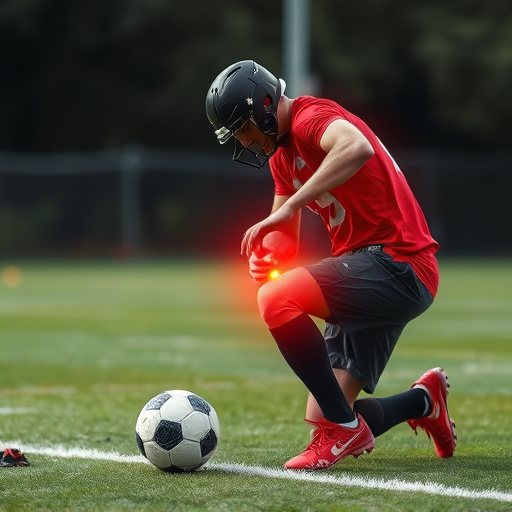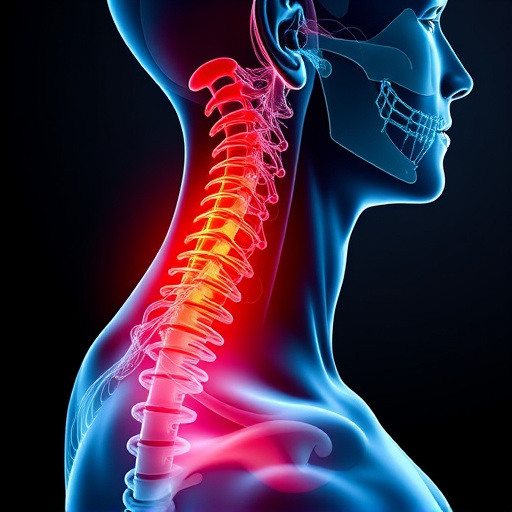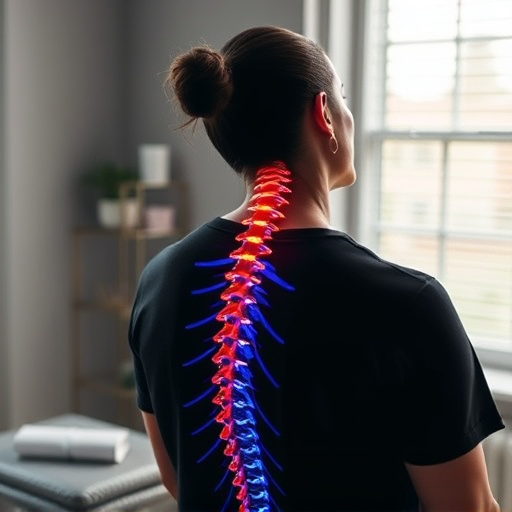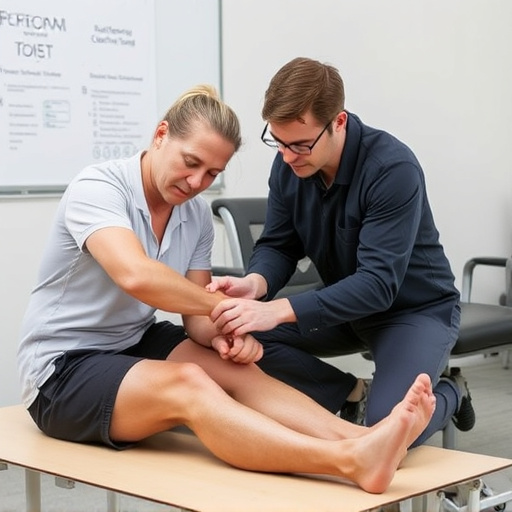Chronic pain management programs holistically address pain through evidence-based practices like medication, cognitive behavioral therapy, and functional rehabilitation. These structured interventions significantly improve quality of life and functionality by enhancing physical mobility, mental resilience, and coping abilities during pain flares. Tailored care enables individuals to manage chronic pain while maintaining or restoring pre-pain levels of activity, leading to better sleep, mood, and overall well-being. The comprehensive approach includes various treatments like physical therapy, shockwave therapy, and cognitive-behavioral techniques to alleviate pain, strengthen muscles, reduce stress, and boost decision-making abilities, ultimately fostering independence and connection in daily routines.
Chronic pain, a pervasive condition affecting millions, often leads to decreased quality of life and increased dependency on medications. However, structured chronic pain management programs offer a promising solution for long-term positive outcomes. This article explores the transformative power of such programs in improving functionality and overall well-being. We delve into how these initiatives reduce medication reliance, prevent complications, and promote independence, ultimately enhancing the lives of those navigating chronic pain. Discover the strategies and benefits of effective chronic pain management.
- Improving Quality of Life and Functionality
- – Exploring the positive impact on daily living and overall well-being.
- – Discussing enhanced mobility, mental clarity, and improved social interactions.
Improving Quality of Life and Functionality

Chronic pain management programs have been shown to significantly improve participants’ quality of life and functionality over the long term. By integrating evidence-based practices such as medication management, cognitive behavioral therapy, and functional rehabilitation, these programs address not just the symptoms but also the underlying causes of pain. This holistic approach fosters muscle recovery and enhances overall wellness care, enabling individuals to regain control of their daily lives and reduce the debilitating effects of chronic pain.
Participants in well-structured programs often report increased physical mobility, improved mental resilience, and a better ability to cope with pain flares. Functional rehabilitation techniques, in particular, focus on strengthening muscles and improving flexibility, thereby enhancing overall mobility and reducing the risk of further injury or discomfort. This tailored care ensures that individuals not only manage their pain but also maintain or even restore their pre-pain levels of functionality, ultimately leading to a higher quality of life.
– Exploring the positive impact on daily living and overall well-being.

Chronic pain management programs have been shown to significantly improve daily living and overall well-being. These structured interventions go beyond symptom control, addressing the physical, emotional, and social aspects of chronic pain. By integrating various modalities such as medication, physical therapy, cognitive behavioral therapy, and non-invasive treatments like shockwave therapy for pain, these programs empower individuals to regain control over their lives. Participants often report enhanced mobility, better sleep, improved mood, and increased resilience in the face of pain challenges.
Moreover, chronic pain management fosters muscle recovery and promotes a more active lifestyle. The holistic approach ensures that each component of the program complements one another, creating a supportive environment for healing and restoration. As individuals learn coping strategies and gain insights into their pain condition, they become better equipped to navigate daily activities without the overwhelming burden of chronic pain. This transformation leads to improved quality of life and greater satisfaction with overall well-being.
– Discussing enhanced mobility, mental clarity, and improved social interactions.

Chronic pain management programs designed with a structured approach have been shown to bring about significant improvements in patients’ lives. One of the notable long-term outcomes is enhanced mobility, as these programs often incorporate exercises tailored to alleviate pain and strengthen muscles, allowing individuals to move more freely. This increased mobility not only improves physical capabilities but also boosts mental health by reducing feelings of isolation and promoting a sense of independence.
Additionally, structured chronic pain management can lead to improved mental clarity. The combination of targeted treatments, including physical therapy and cognitive-behavioral techniques, helps patients develop coping strategies that reduce stress and anxiety associated with pain. This mental clarity translates into better decision-making abilities and an overall improved quality of life, enabling individuals to engage more effectively in social interactions. Whether it’s participating in community activities or simply enjoying time with loved ones, these programs foster a sense of connection, further emphasizing the holistic benefits of effective chronic pain management, including pinched nerve relief, sports injury treatment, and joint pain relief.
Structured chronic pain management programs significantly enhance quality of life and functionality for patients over the long term. By prioritizing holistic approaches that combine medical interventions, psychological support, and lifestyle modifications, these programs empower individuals to regain control over their daily lives. The positive outcomes extend beyond improved mobility and mental clarity; they foster enhanced social interactions and a greater sense of well-being, demonstrating the transformative power of comprehensive chronic pain management.














